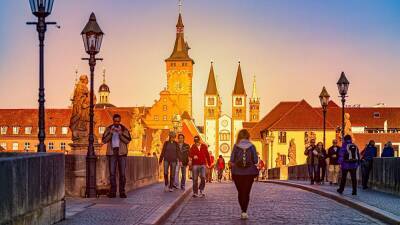COVID in Europe: An updated list of travel restrictions for every European country
Most countries have travel restrictions in place in a bid to control the spread of COVID-19.
The latest big changes include:
Ireland has abolished all COVID-19 entry restrictions from 6 March.
Germany allows in all travellers, regardless of their country of origin, as high-risk list is abolished from 3 March.
Austria lifts all domestic COVID-19 restrictions from March 5, except masks on public transport and in essential shops.
_This article is updated regularly, but rules change quickly so please check official government advice before travelling._
For travel changes due to the Ukraine-Russia conflict, see this and this article.
Measures to contain COVID-19 remain in effect, including night-time curfews from 11pm to 6am, and mandatory face masks indoors and on public transport.
All land borders are open and there is no restricted movement around the country.
All foreign nationals over the age of six must have one of the following: proof of vaccination, a negative PCR test taken less than 72 hours before arrival, a rapid antigen test taken less than 48 hours before arrival or evidence that you have recovered from COVID-19 within the last six months.
More information here.
More information here.
Connected to the EU Digital COVID Certificate (EUDCC), which allows restriction-free travel across all EU and EEA countries following proof of vaccination and a negative COVID test.
One of three documents is required to enter the country - a negative PCR test no older than 72 hours, a vaccine certificate or proof of past infection.
If you are travelling from a country not on Austria’s safelist you will need to complete a pre-travel clearance form. You can find the full list of safe countries and regions here.
The current curfew for restaurants is








